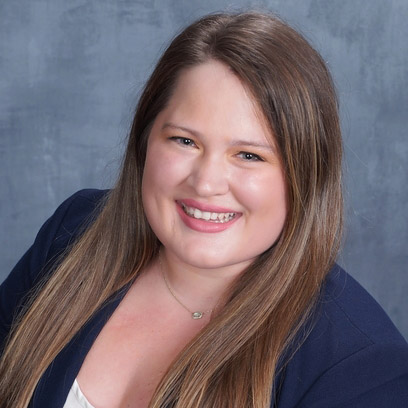Presenter Profile

Heather Hirsch, MD, MPH
Resident Physician, Department of Pediatrics
Emory University
AAP Representative, Emory Pediatrics Residency Program
Children's Healthcare of Atlanta
HMHirsc@emory.edu
Heather Hirsch is a third year pediatric resident at Emory University/Children's Healthcare of Atlanta. Her research interests are in advocacy, injury prevention, and medical education. She hopes to work as a pediatric hospitalist incorporating aspects of injury prevention and child safety into the hospitalist role. She also hopes to develop broader injury prevention curriculums for pediatric residents and medical students.
Presentations
Safety Baby Showers: An Approach to Improve Parental and Pediatric Resident Practice of Infant Injury Prevention
Heather Hirsch, MD, MPH
Melissa Adams, MD
Vidya Menon, MD
Brooke Evans, MD
Kaitlin Hannan, MD
Christine Kaba, MD
Unintentional injuries are the leading cause of deaths for all people from ages 1-44 years old. For infants (children under 1 year of age), unintentional injuries are the 5th leading cause of death. Unintentional injuries have been shown to be decreased via injury prevention counseling. One way to provide such counseling is via safety baby showers which are educational events that are feasible and helpful in improving expectant parent knowledge and comfortability with infant-related injury prevention topics. We also know that pediatric resident physicians can be great sources of information and influence for families of infants but do not always incorporate injury prevention discussions into their visits with families. In one study, less than half of pediatric residents mentioned injury prevention in their well-child visits, and when an injury prevention topic was introduced, only approximately 1 minute was devoted to the topic.
The goal of our program is to implement a sustainable safety baby shower curriculum into an existing group prenatal care setting for low-income mothers. Our curriculum includes multiple injury prevention topics ranging from infant safe sleep to poison prevention. We will provide a safety baby shower guide for families to reference, we will have individual stations on different injury prevention topics, and we plan to provide safety devices like hot water monitors, safe sleep sacks, baby proofing devices, etc. to incentivize parents to continue practicing infant injury prevention after their baby is born. We plan to evaluate the attendants’ knowledge, attitude, and beliefs related to infant injury prevention topics via surveys at the showers along with a one-month follow-up phone call (after their baby is born) to gauge retention of safety topics and family’s current practice. Additionally, we would like to gather baseline data of Emory pediatric residents’ knowledge of, barriers to discussing, and comfortability with discussing injury prevention topics. We also plan to have some pediatric residents participate in the showers so we can assess the efficacy of the showers’ ability to increase pediatric resident’s knowledge of and comfortability with discussing injury prevention with families.
We expect our intervention to improve expectant parents’ knowledge of and comfortability with infant injury prevention topics. We hope by providing some infant safety devices parents will endorse adherence to infant safety practices. Additionally, we expect pediatric residents’ knowledge and comfortability with discussing injury prevention topics to be on the lower side at baseline since they do not receive much training on these topics at present. We hope the residents that attend the showers will have improved knowledge and comfortability with infant safety topics as opposed to their colleagues who did not attend.
Infant safety is a wide array of topics that can be overwhelming for both parents and healthcare providers. We believe that safety baby showers will improve both parents’ knowledge and comfortability in practicing infant injury prevention along with improving pediatric resident knowledge and comfortability discussing these topics with parents.
1. Key components of safety baby showers
2. Safety baby showers can be implemented into existing programs
3. Areas pediatric residents may improve in their knowledge of infant safety
